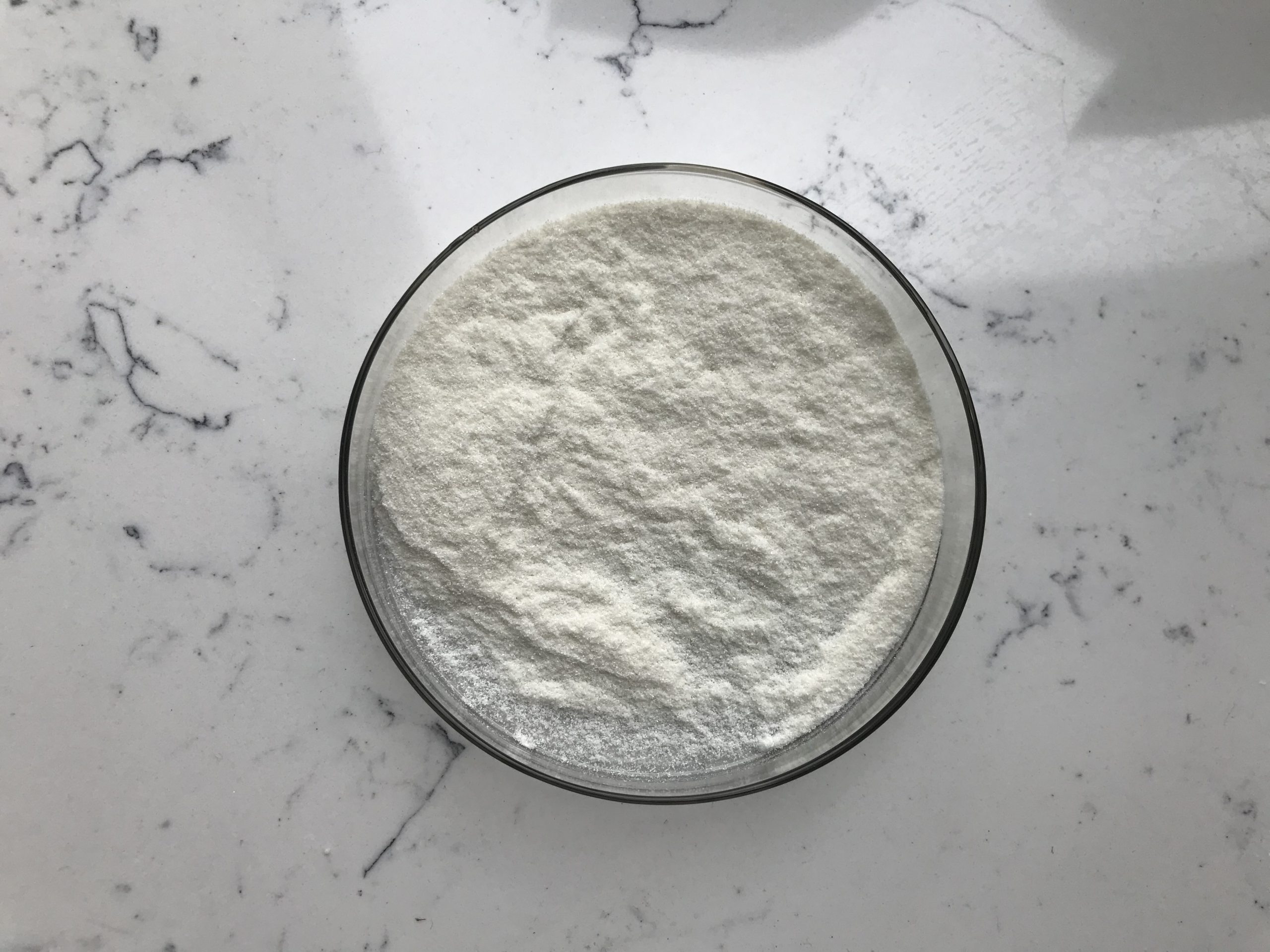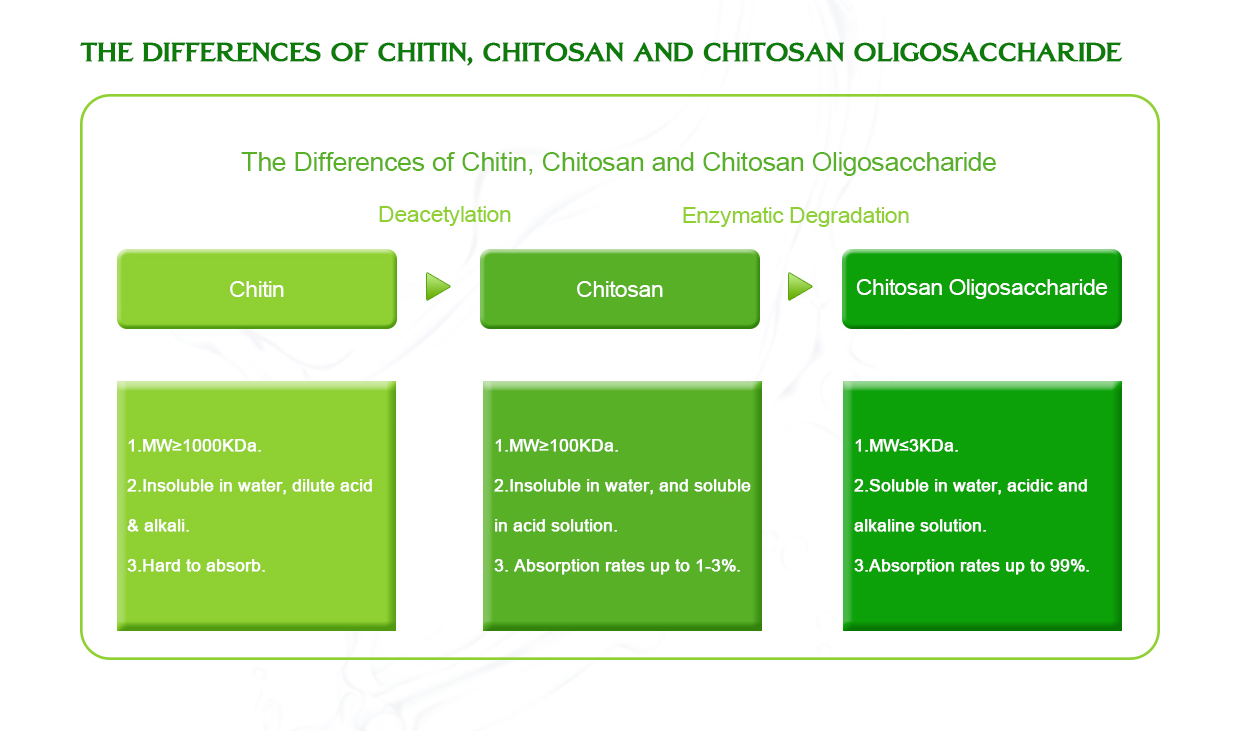Chitosan is a natural biopolymer derived from chitin, which is found in the shells of crustaceans like shrimp and crabs. It has a range of uses across various industries due to its unique properties, such as biodegradability, biocompatibility, and ability to bind to fats. Some of the main uses of chitosan include:
1. Weight Loss and Fat Reduction
- Chitosan is often marketed as a weight loss supplement. It is believed to block the absorption of dietary fats by binding to them in the digestive system and preventing their absorption into the body. However, the effectiveness of chitosan in weight loss has been debated in scientific research.
2. Dietary Fiber Supplement
- Chitosan is sometimes used as a dietary fiber, aiding in digestion and promoting gut health. It is also thought to help lower cholesterol levels by binding to bile acids and reducing their reabsorption.
3. Wound Healing
- Chitosan has antibacterial properties and is used in wound dressings to promote healing and prevent infection. It can help form a gel-like substance that aids in the healing of minor wounds and burns.

4. Biodegradable Plastic
- Due to its natural, biodegradable nature, chitosan is being explored as an alternative to petroleum-based plastics. It can be used in packaging materials, agricultural films, and other products that require biodegradability.
5. Agriculture (Plant Growth and Pest Control)
- Chitosan is used in agriculture as a natural pesticide and fungicide. It is believed to stimulate plant immunity, promote growth, and reduce the effects of fungal and bacterial infections.
6. Water Purification
- Chitosan is used in water treatment to remove heavy metals, oils, and other contaminants. It works by binding to impurities and helping to filter them out of water.
7. Cosmetics and Skincare
- Chitosan is used in cosmetics and skincare products for its moisturizing and wound-healing properties. It is often found in creams, lotions, and face masks, as it can help with skin hydration and promote collagen production.
8. Food Preservation
- In the food industry, chitosan can act as a natural preservative by inhibiting the growth of bacteria and fungi. It can be used to extend the shelf life of fruits, vegetables, and other perishable goods.

9. Pharmaceuticals
- Chitosan is used as a drug delivery system in pharmaceuticals. Its ability to encapsulate drugs or nutrients makes it useful for controlled release of medications or supplements.
10. Biomedical Applications
- In medicine, chitosan has been explored for use in controlled drug release, tissue engineering, and the development of wound dressings. Its biocompatibility makes it an attractive material for these applications.
Chitosan’s versatility across industries makes it a valuable resource in science, health, and technology. However, while it shows potential in many of these applications, further research is often needed to fully validate its effectiveness in certain areas.
